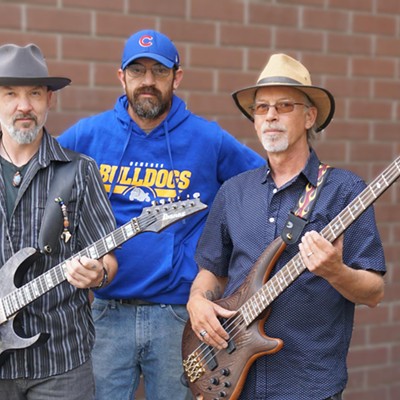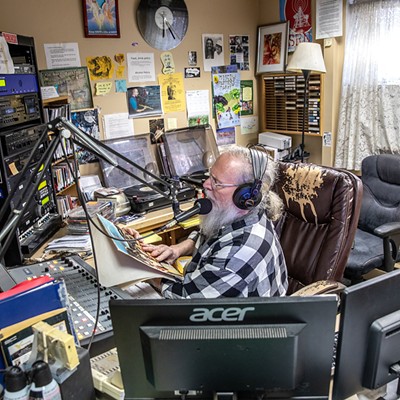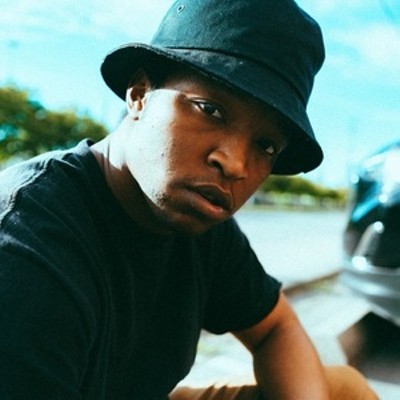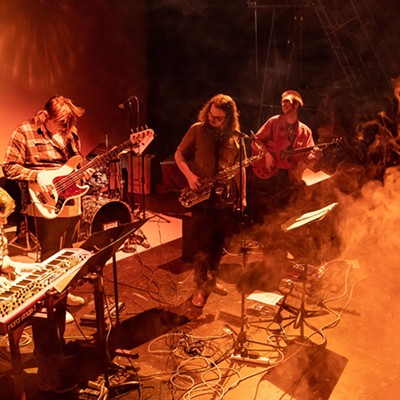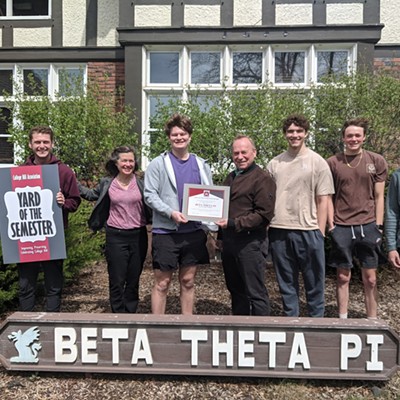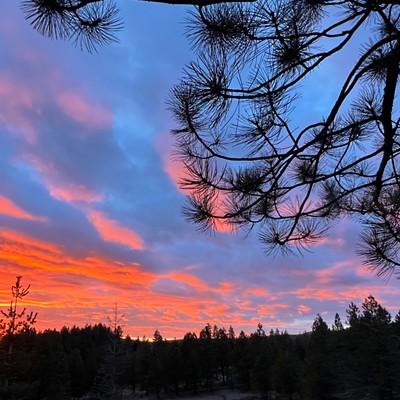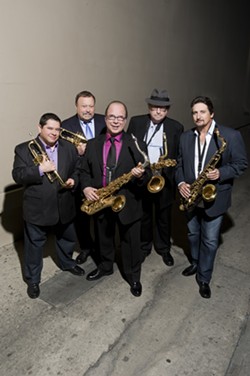
There is a growling, guttural shout out to the Tower of Power horn section on a particular live version of “Spanish Moon.”
Tenor saxophone player Emilio Castillo remembers that incensed night and the 1977 tour his horn section guested on with blues and boogie band Little Feat — shows in London and Washington, D.C., that turned into the live album “Waiting for Columbus.” “It was a crazy time but they were a very passionate group,” said Castillo, now 65. By that date, the R&B and funk outfit Tower of Power had released seven studio albums. These early albums, “Tower of Power” from 1973 and “Bump City” from 1972, feature their most popular work to date. Oakland native Castillo described the horn section he founded in the late ’60s as one with rhythm in spades. Well, if Castillo was the rhythm, then brother in brass Stephen “Doc” Kupka was the spades. Castillo said he hired Kupka and his baritone saxophone in 1968. Shortly after entering the band, Kupka altered Tower of Power’s musical odyssey indefinitely. As Castillo remembers it, Kupka liked the band’s sound but asked during a jam one day, “Why are we doing it to everybody else’s songs, why don’t we write our own?” At this early stage, Castillo’s brood relied entirely on cover songs. “I don’t think I ever would have come up with that,” he said. “I was happy doing what I was doing.” A strike of lightning, as it turned out. He said first go-round they composed “You’re Still a Young Man,” a song that to this day is one of their more popular. “I tell people jokingly it’s been downhill ever since,” he said. Despite his chops as a sax player, Castillo said his true talents were for orchestration. He cited the band’s succinct, punctuated and brassy rhythm as the reason famed San Francisco promoter Bill Graham became interested in them. Graham signed them to their first record contract in 1970. The Bay area was “a music Mecca,” said Castillo, and for them the landscape shifted at just the right time. By the late 1960s, he said, the dominance of psychedelic journeymen like the Jefferson Airplane and the Grateful Dead waned, and the shows at the Bill Graham Fillmore Auditorium reflected this. Graham was tweaking the collective ear of the Bay. “When you went to the Fillmore on any given night you might see Moby Grape but you’d also see Albert Collins and Miles Davis,” Castillo said. “And the next night you might see Big Brother and the Holding Company, but you’d also see Otis Redding and Rashaan Roland Kirk.” “Their ear was really open and they were ready for someone like us.” Over four decades later the Tower of Power is out on the road 200 days a year. Alongside Castillo and Kupka, David Garibaldi (drums), and Francis “Rocco” Prestia (bass) are also original members. TOP has two different setlists at their disposal for the 10:15 p.m. Friday show at the ASUI Kibbie Dome on the University of Idaho campus as part of the 2016 Lionel Hampton Jazz Festival. Castillo said at least an hour of these shows will delve deeper into their catalogue, but “we always do ‘What is Hip’ and we always do ‘You’re Still a Young Man.’ ” However, there may never have been a Tower of Power 40th anniversary in 2008, or two albums this millennium, had the partying continued the way it had the night before that 1977 show. Castillo said most of Little Feat, as well as their trumpet player, had partaken in an all-night bender. Feat guitarist Paul Barrere was in ill repair, limping around sound-check. Frontman Lowell George had lit matches between his toes. “They had actually unplugged his amp and he kept turning around and plugging it in, then a roadie would come out and unplug it again,” Castillo said. Tensions were high, Castillo recalls how George punched drummer Richie Hayward right before heading on stage. As for Castillo. “I was as loaded, or worse than all of them and nearly died because of it,” he said of his own substance related struggles. Castillo said he bottomed out in 1988 and “Doc” soon followed suit. “As soon as we got sober, I started hiring more sane people,” Castillo said. A budding spirituality guided Castillo and his band through recovery on through to today.
“We pray together all the time, it’s a whole different ball game now,” Castillo said.


